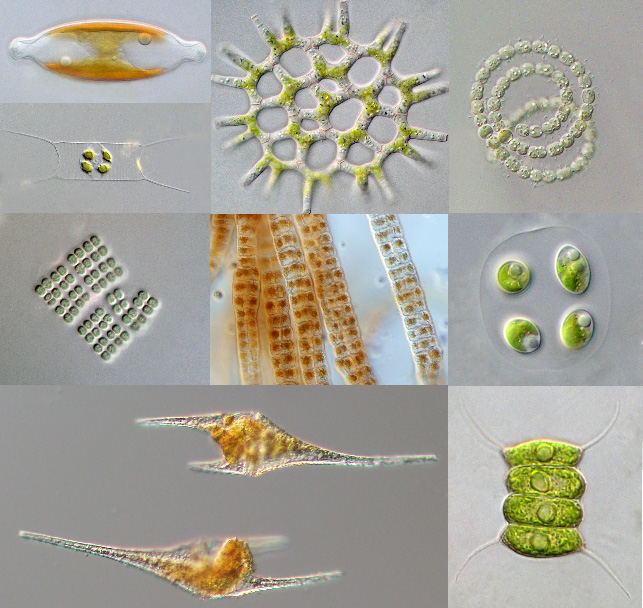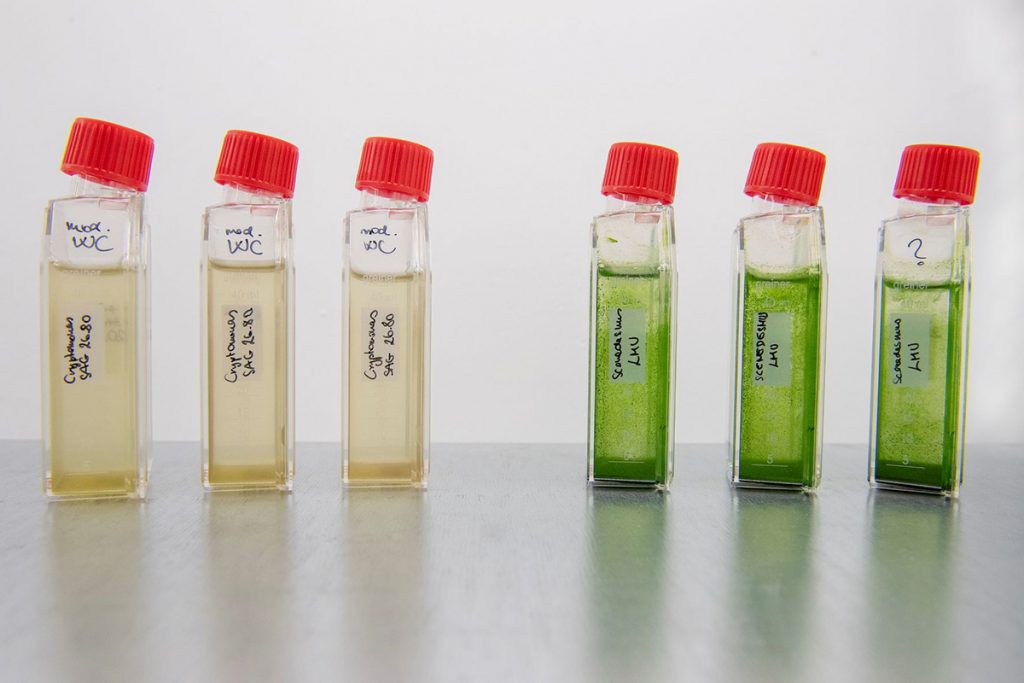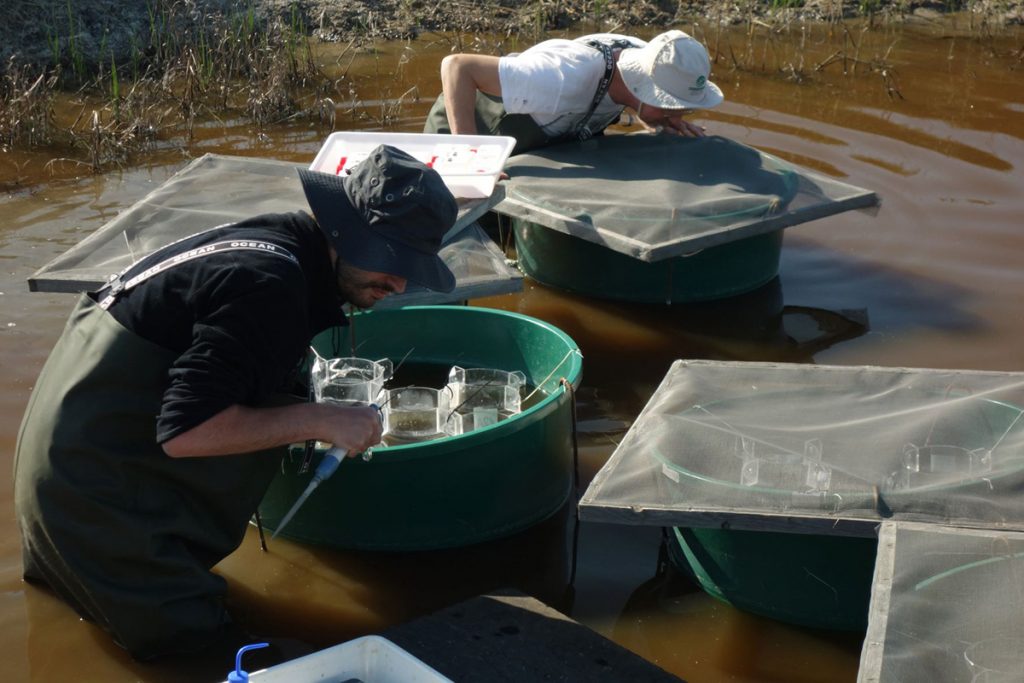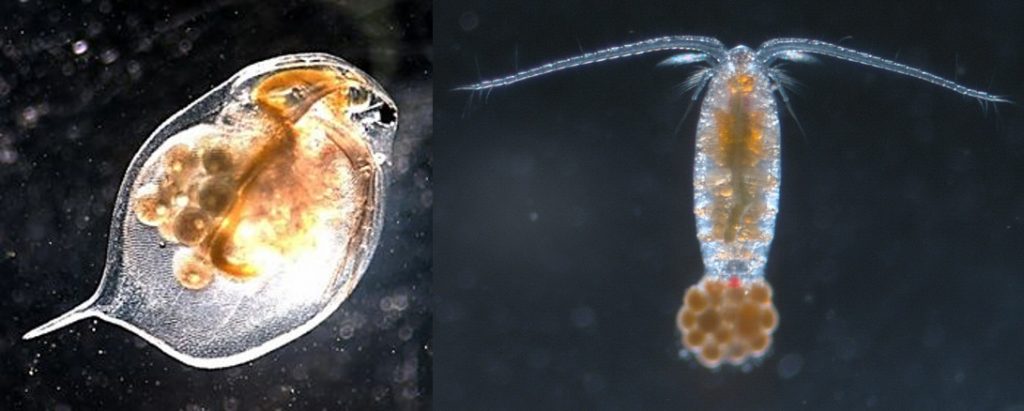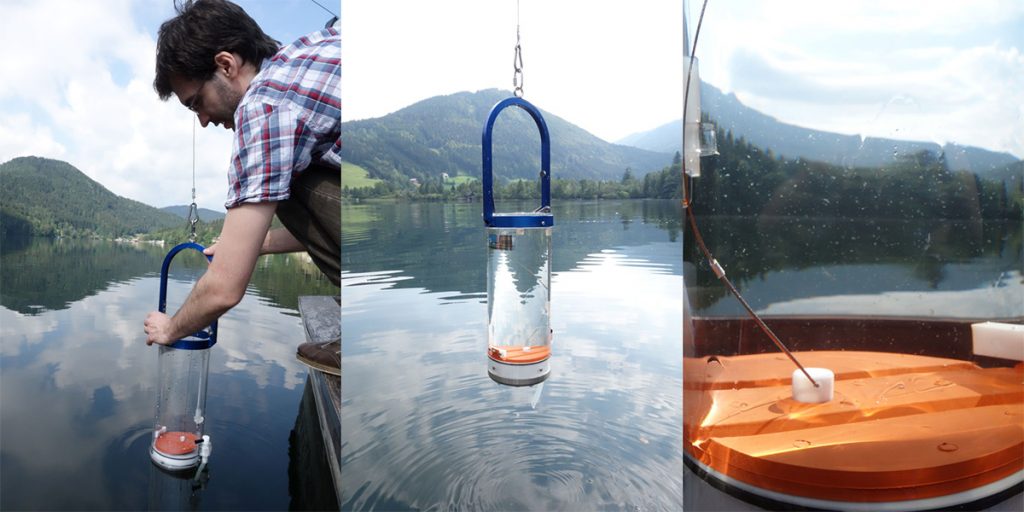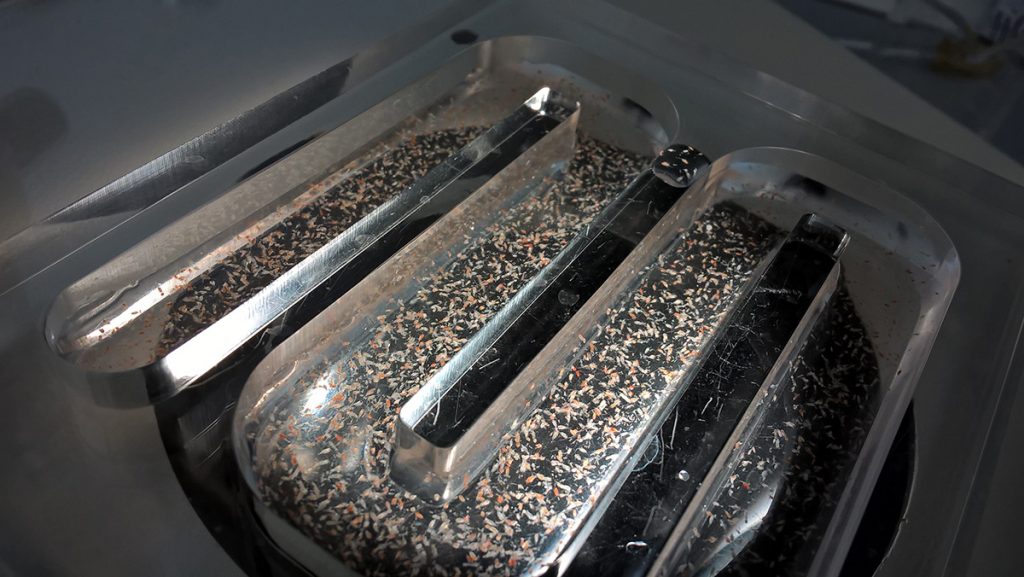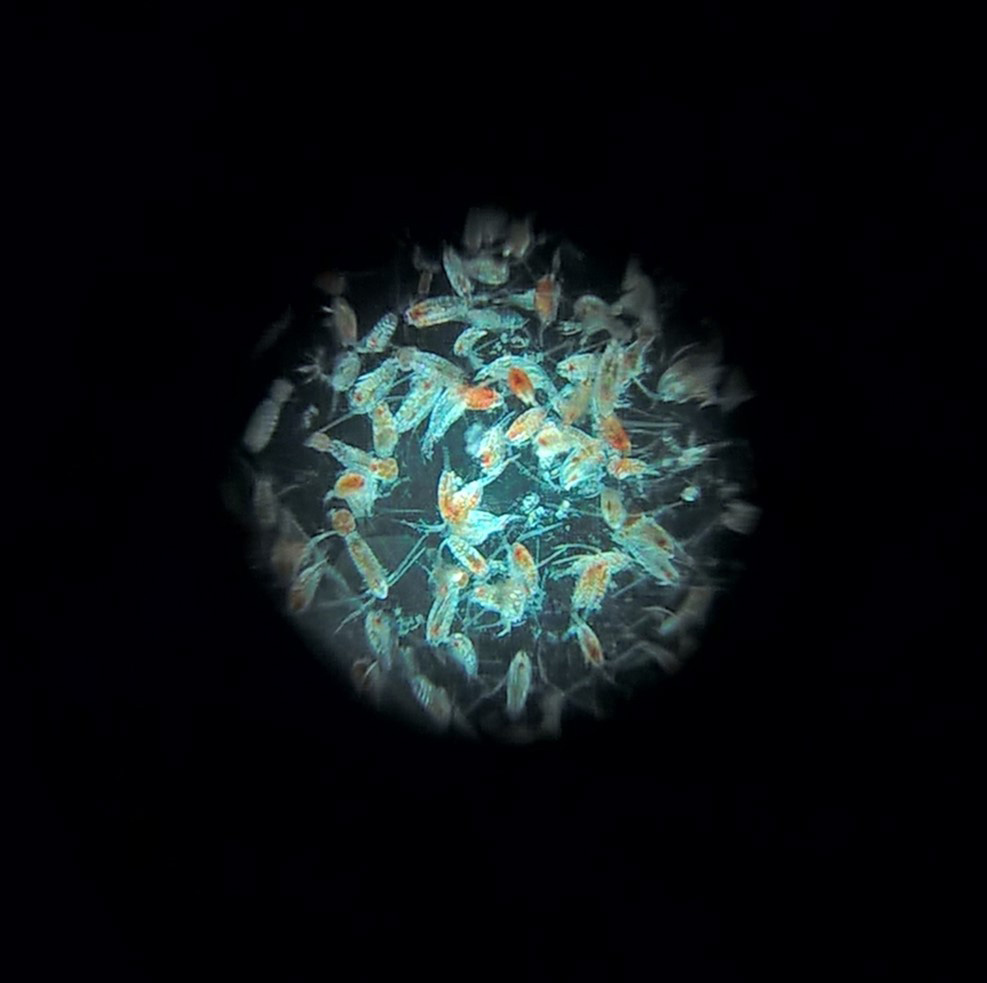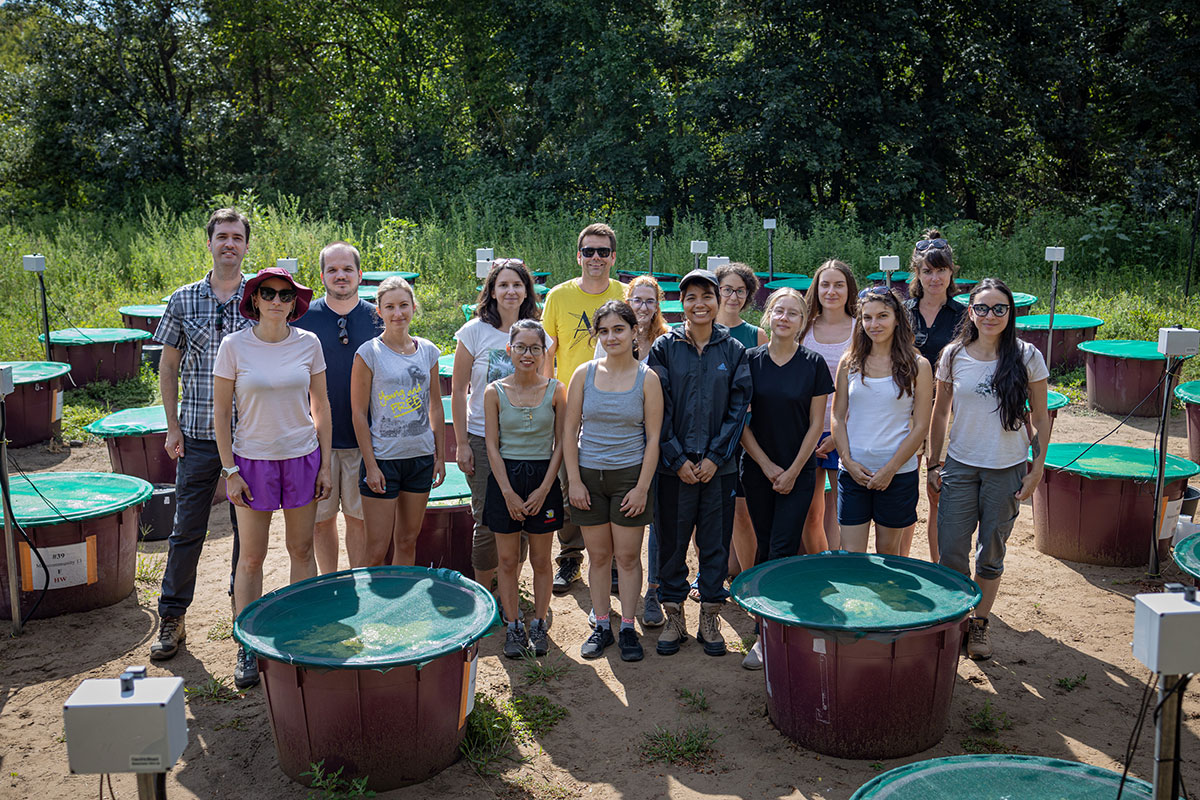
Research groups
Plankton Ecology Research Group
Members of the research group:
-
Endrédi, Anett, PhD
Research fellow
-
Rani, Varsha, M.Sc.
assistant research fellow
-
Kardos, Vivien
institute engineer
-
Varga, Dorina
ecological expert
-
Ádám, Balázs, PhD-student
assistant research fellow
Main profile:
Plankton play a central role in aquatic ecosystems, by representing the main primary producers (phytoplankton) and a key link of energy transfer to higher trophic levels (zooplankton). Our research group is motivated to understand how planktonic communities respond to environmental gradients, and how changes in community composition are linked to ecosystem functioning. By combining empirical and experimental research (micro-and mesocosm experiments), as well as taxonomic and functional approaches, we seek for a more mechanistic understanding on the consequences of planktonic community shifts as a response to multiple stressors under global change. Another focus of our group lies in the ecology and conservation of small aquatic habitats, such as ponds and pools. While these habitats maintain exceptionally high biodiversity and are excellent model systems to test basic ecological theories, their global decline highlights the need of their evidence-based conservation.
Selected publications
Huỳnh Thu‐Hương; Horváth Zsófia; Pálffy Károly; Kardos Vivien; Szabó Beáta; Dobosy Péter; Vad Csaba F.: Heatwave‐induced functional shifts in zooplankton communities result in weaker top‐down control on phytoplankton ECOLOGY AND EVOLUTION, 14 : 8, Paper: e70096 (2024)
2024
Rani Varsha; Horváth Zsófia; Nejstgaard Jens C.; Fierpasz Ádám; Pálffy Károly; Vad Csaba F.: Food density drives diet shift of the invasive mysid shrimp, Limnomysis benedeni ECOLOGY AND EVOLUTION, 14 : 4 (2024)
2024
Pálffy K.; Smeti E.: Combined effect of warming, nutrients, and species pool size on the seasonal variability of phytoplankton composition: A modeling perspective LIMNOLOGY AND OCEANOGRAPHY, Paper: 12548 (2024)
2024
Brans Kristien I.; Vad Csaba F.; Horváth Zsófia; Santy Luca; Cuypers Kiani; Ptacnik Robert; De Meester Luc.: Regional and fine-scale local adaptation in salinity tolerance in Daphnia inhabiting contrasting clusters of inland saline waters PROCEEDINGS OF THE ROYAL SOCIETY B-BIOLOGICAL SCIENCES, 291 : 2016. Paper: 20231917 (2024)
2024
Patonai Katalin; Endrédi Anett; Horváth Zsófia; Borza Péter; Pálffy Károly; Dobosy Péter; Vad Csaba F.: Trophic impact of an invasive mysid shrimp depends on zooplankton community composition: A mesocosm experiment. Freshwater Biology, 00, 1–12. (2024)
2024
Barta Barbara; Szabó Attila; Szabó Beáta; Ptacnik Robert; Vad Csaba; Horváth Zsófia.: How pondscapes function: connectivity matters for biodiversity even across small spatial scales in aquatic metacommunities ECOGRAPHY, 2024 (2), Paper: e06960 (2024)
2024
Huỳnh Thu‐Hương; Horváth Zsófia; Pálffy Károly; Kardos Vivien; Szabó Beáta; Dobosy Péter; Vad Csaba F.: Heatwave‐induced functional shifts in zooplankton communities result in weaker top‐down control on phytoplankton ECOLOGY AND EVOLUTION, 14 : 8, Paper: e70096 (2024)
2024
Rani Varsha; Horváth Zsófia; Nejstgaard Jens C.; Fierpasz Ádám; Pálffy Károly; Vad Csaba F.: Food density drives diet shift of the invasive mysid shrimp, Limnomysis benedeni ECOLOGY AND EVOLUTION, 14 : 4 (2024)
2024
Pálffy K.; Smeti E.: Combined effect of warming, nutrients, and species pool size on the seasonal variability of phytoplankton composition: A modeling perspective LIMNOLOGY AND OCEANOGRAPHY, Paper: 12548 (2024)
2024
Brans Kristien I.; Vad Csaba F.; Horváth Zsófia; Santy Luca; Cuypers Kiani; Ptacnik Robert; De Meester Luc.: Regional and fine-scale local adaptation in salinity tolerance in Daphnia inhabiting contrasting clusters of inland saline waters PROCEEDINGS OF THE ROYAL SOCIETY B-BIOLOGICAL SCIENCES, 291 : 2016. Paper: 20231917 (2024)
2024
Patonai Katalin; Endrédi Anett; Horváth Zsófia; Borza Péter; Pálffy Károly; Dobosy Péter; Vad Csaba F.: Trophic impact of an invasive mysid shrimp depends on zooplankton community composition: A mesocosm experiment. Freshwater Biology, 00, 1–12. (2024)
2024
Barta Barbara; Szabó Attila; Szabó Beáta; Ptacnik Robert; Vad Csaba; Horváth Zsófia.: How pondscapes function: connectivity matters for biodiversity even across small spatial scales in aquatic metacommunities ECOGRAPHY, 2024 (2), Paper: e06960 (2024)
2024
Borza Péter; Rani Varsha; Vad Csaba F.: Niche differentiation among facultative filter feeders: Insights from invasive Ponto-Caspian mysids CURRENT ZOOLOGY (2023)
2023
Vad Csaba F.; Hanny-Endrédi Anett; Kratina Pavel; Abonyi András; Mironova Ekaterina; Murray David S.; Samchyshyna Larysa; Tsakalakis Ioannis; Smeti Evangelia; Spatharis Sofie; Tan Hanrong; Preiler Christian; Petrusek Adam; Bengtsson Mia M.; Ptacnik Robert.: Spatial insurance against a heatwave differs between trophic levels in experimental aquatic communities GLOBAL CHANGE BIOLOGY, First published: 22 March 2023, Paper: 16692 (2023)
2023
Cunillera-Montcusí, David; Beklioğlu, Meryem; Cañedo-Argüelles, Miguel; Jeppesen, Erik; Ptacnik, Robert; Amorim, Cihelio A.; Arnott, Shelley E.; Berger, Stella A.; Brucet, Sandra; Dugan, Hilary A.; Gerhard, Miriam; Horváth, Zsófia; Langenheder, Silke; Nejstgaard, Jens C.; Reinikainen, Marko; Striebel, Maren; Urrutia-Cordero, Pablo; Vad, Csaba F.; Zadereev, Egor; Matias, Miguel.: Freshwater salinisation: a research agenda for a saltier world TRENDS IN ECOLOGY & EVOLUTION. 37: 440-453
2022
Varsha Rani; Tim Burton; Matthew Walsh; Sigurd Einum.: Evolutionary change in metabolic rate of Daphnia pulicaria following invasion by the predator Bythotrephes longimanus Ecology and Evolution, 12, e9003.
2022
Vad, Csaba F.; Schneider, Claudia; Fischer, Robert; Kainz, Martin J; Ptacnik, Robert.: From adverse to beneficial – contrasting dietary effects of freshwater mixotrophs on zooplankton FRESHWATER BIOLOGY. 66: 2272-2282
2021


